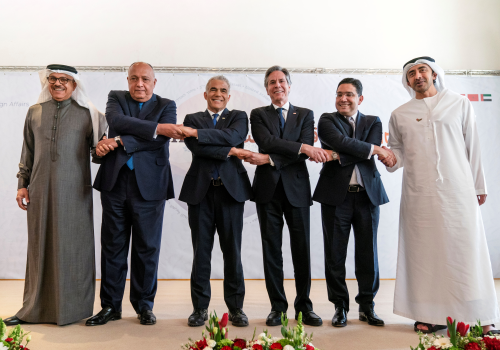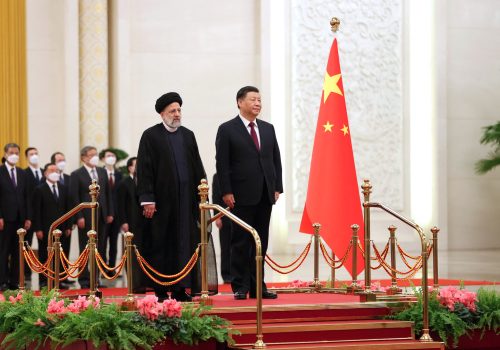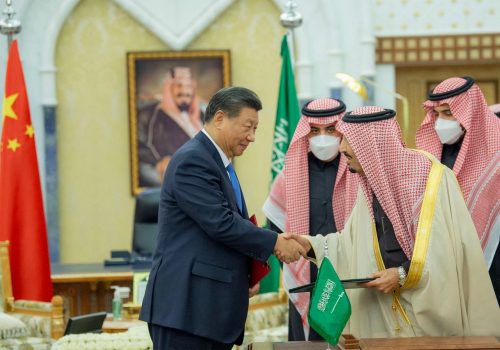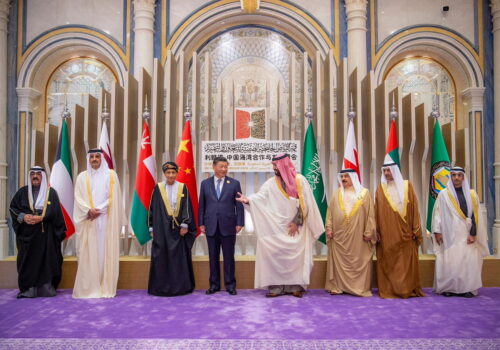China vs. IMEC: The Minilateral Movement in the Middle East
SUBSCRIBE TO THE CHINA-MENA PODCAST ON THE APP OF YOUR CHOICE
Key takeaways
- India-Middle East-Europe Economic Corridor (IMEC) and the Current Geopolitical Context
- France’s Strategic Involvement in IMEC
- Uncertainties Surrounding IMEC
- Changing Landscape post-Gaza War
Chapters
00:00 – Introduction
00:23 – Exploring Middle East Mini Laterals
05:41 – Analyzing the US-led I2U2 Initiative
06:58 – Middle Eastern Caution Towards a New Quad
11:28 – Research Challenges in a Changing Middle East
15:04 – Jordan’s Vital Role in Regional Stability
18:37 – Unpacking China’s Regional Influence
23:35 – Shifting Foreign Policies Amid US-China Competition
26:31 – Innovations in Security via Mini Laterals
30:08 – Insights on Middle Eastern Politics and China’s Responses
35:28 – UAE and India: Infrastructural Investments and Rebranding
38:27 – Issues with IMEC Format and Financing Concerns
40:24 – Uncertainties Surrounding Israel’s Role
43:12 – Outro
In this episode
About
In this episode, Jean-Loup Samaan, a nonresident senior fellow at the Atlantic Council’s Scowcroft Middle East Security Initiative and a research fellow at the National University of Singapore’s Middle East Institute, joins us to dissect the rise of the new minilateral movement in the Middle East, the India-Middle East-Europe Economic Corridor (IMEC), the groundbreaking corridor, and its impact on the region compared to Chinese initiatives. Explore the ongoing significance of IMEC and its uncertainties, including financial concerns. Dive deeper into:
- Shifting Alliances: How is the post-Gaza war landscape impacting Israel’s role in minilateral movements, especially US-led, potentially boosting China’s influence?
- The Abraham Accords Ripple Effect: How did the Accords kickstart and pave the way for a new era of cooperation in the Middle East?
- IMEC’s Impact and France’s Role: Will it become a game-changer for India-MENA trade, and what is France’s strategic engagement in the grouping?
This episode offers a deep dive into the evolving power dynamics of the Middle East, with China, India, and the US vying for influence. Tune in to understand how these minilateral groupings, like IMEC, might reshape the region’s future!
Read more below
Hosted by
The benefit of minilaterals is creating new discussion mechanisms among countries, crucial in regions like the Middle East lacking strong security frameworks
About the China-MENA podcast
The China-MENA podcast features conversations with academics, think-tankers, and regional specialists on Chinese Influence in the Middle East and informs US and MENA audiences in the policy and business communities about the nature of China’s outreach to the region.
At a time when China’s global footprint is getting deeper and deeper, it has never been more important to understand its foreign policy and the Middle East is one of the world’s most consequential regions: home to major religions, diverse cultural and social heritage, central to global energy markets, and of course, geopolitics, linking people and markets in Asia, Africa and Europe. This show will help you understand what China is doing in the region, and how the region is engaging with China as an increasingly important external power.
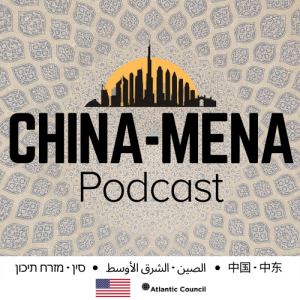
Podcast series
Listen to the latest episode of the China-MENA podcast, featuring conversations with academics, government leaders, and the policy community on China’s role in the Middle East.
Recommended reading
This podcast was funded in part by a grant from the United States Department of State. The opinions, findings, and conclusions stated herein are those of the author and do not necessarily reflect those of the United States Department of State.
Image: Saudi Arabian Crown Prince Mohammed bin Salman Al Saud and U.S. President Joe Biden shake hands next to Indian Prime Minister Narendra Modi on the day of the G20 summit in New Delhi, India, September 9, 2023. REUTERS/Evelyn Hockstein/Pool TPX IMAGES OF THE DAY








